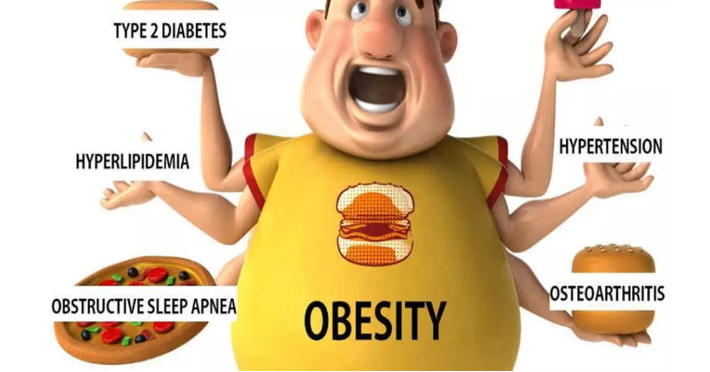In this article, we talked with Jason Campbell and Tristan Newton about what they think about obesity nowadays, since it is a very widespread illness which is causing several issues.
“Among whom is obesity more widespread? “In my personal opinion, obesity seems to be more prevalent among adults than children. In my experience, I have noticed that many adults lead sedentary lifestyles and often have an unbalanced diet that is high in high-calorie foods and low in nutrition. However, it is important to consider that obesity can affect people of all ages and demographic groups, so there may also be significant prevalence among children in some settings” said Jason.
“ In my own experience, I have noticed that obesity is more prevalent among kids. I have noticed that many children today spend a lot of time in front of electronic device screens without engaging in outdoor physical activities or sports practices. In addition, many kids are exposed to unhealthy diets rich in foods high in sugar and fat. These factors may contribute to weight gain and the spread of obesity among children. However, this does not exclude the presence of obesity among adults as well, but simply my personal observation leads me to believe that kids are more affected by this problem” said Tristan.
“What are the risks, causes and consequences?” “The risks of obesity are many and often include diabetes, heart disease, hypertension, and some cancers. The causes of obesity can result from a combination of genetic factors, poor eating habits, lack of physical activity, and environmental factors. It is important to understand that obesity not only affects physical health, but can also negatively affect mental health and reduce overall quality of life’ said Jason
“Obesity poses a serious health risk because of its implications on type 2 diabetes, heart disease, hypertension, and the risk of some forms of cancer. The causes of obesity are multifactorial and may include an unhealthy diet, poor physical activity, and predisposing genetic factors. However, the consequences of obesity go beyond physical problems and can negatively affect a person’s self-esteem, mental health, and mobility. It is essential to adopt a healthy lifestyle, including a balanced diet and regular exercise, to effectively prevent and address obesity” said Tristan
When do the first symptoms of obesity appear?
“Early symptoms of obesity can occur very early in life, during childhood or adolescence. Significant weight gain is usually one of the first signs. Obese children may also have difficulty moving or performing physical activities, present with self-esteem problems and low self-confidence related to physical appearance. Other symptoms may include changes in appetite and vision, such as a desire to consume large amounts of food or increased sensitivity to high-calorie foods” said Tristan.
“Symptoms of obesity can occur at any age, but they tend to become more prominent in later stages of life, such as adulthood. Initially, there may be visible fat accumulation, especially in the abdominal region. The person may have difficulty with weight management, with a progressive increase in body mass index (BMI). The condition can lead to faster fatigue during exercise, sleep disturbances, and respiratory changes such as sleep apnea. In the long term, obesity can cause metabolic disorders such as insulin resistance, increasing the risk of developing health problems such as type 2 diabetes, cardiovascular disease, and cholesterol disorders” said Jason.
“Where do you think it is most widespread?”
“As far as I know, obesity is more prevalent in some regions of the world, such as the United States, Mexico. This can be attributed to several factors, including an increased availability of high-calorie, nutrient-poor foods, a sedentary lifestyle, changes in the traditional diet, and an increase in fast and unhealthy eating habits” said Jason.
“Obesity is widespread in several countries around the world, with high rates found in regions such as the Middle East, Latin America, and parts of Africa. This can be attributed to a combination of factors, such as rapid urbanization and economic development leading to changes in lifestyles, including decreased physical activity, a diet rich in high-calorie foods, and increasing access to processed and unhealthy foods. The incidence of obesity may also be influenced by cultural, socioeconomic, and genetic factors”said Tristan.
Why do you think it is a big problem? “Obesity is considered a serious problem because of the many negative consequences it can have on individual health and society as a whole. Excessive accumulation of body fat can significantly increase the risk of developing chronic diseases such as type 2 diabetes, heart disease, hypertension, and some types of cancer. In addition, obesity can negatively affect quality of life, reduce mobility, limit participation in physical and social activities, and lead to psychological problems such as depression and low self-esteem. On a social and economic level, obesity imposes a significant burden on health care systems and contributes to overall health care costs” said Jason.
“ I think obesity is a major problem because it has significant implications for people’s health and well-being. The presence of excessive body fat can increase the risk of developing numerous chronic diseases, such as diabetes, hypertension, cardiovascular disease, joint problems, and some cancers. In addition, obesity can negatively affect quality of life, leading to physical limitations, difficulties with daily activities, and problems with self-esteem. This impacts not only the individuals themselves, but also the health care system and the economy in general, increasing health care costs and reducing productivity. It is therefore crucial to address obesity as a priority for individual and collective well-being” said Tristan.
How do you think it can be solved ? “The issue of obesity can be addressed through a combination of a balanced diet, regular exercise, and lifestyle changes. This could include reducing consumption of high-fat and high-sugar foods, increasing physical activity, nutritional counseling, and possible support from therapists or health professionals” said Jason.
“The solution for obesity may vary from individual to individual, but generally involves changes in eating behavior and lifestyle. This may include choosing healthy, balanced foods, portion control, regular exercise, and engaging health professionals, such as physicians, dietitians, or fitness counselors, to get the support and knowledge needed” said Tristan.










































